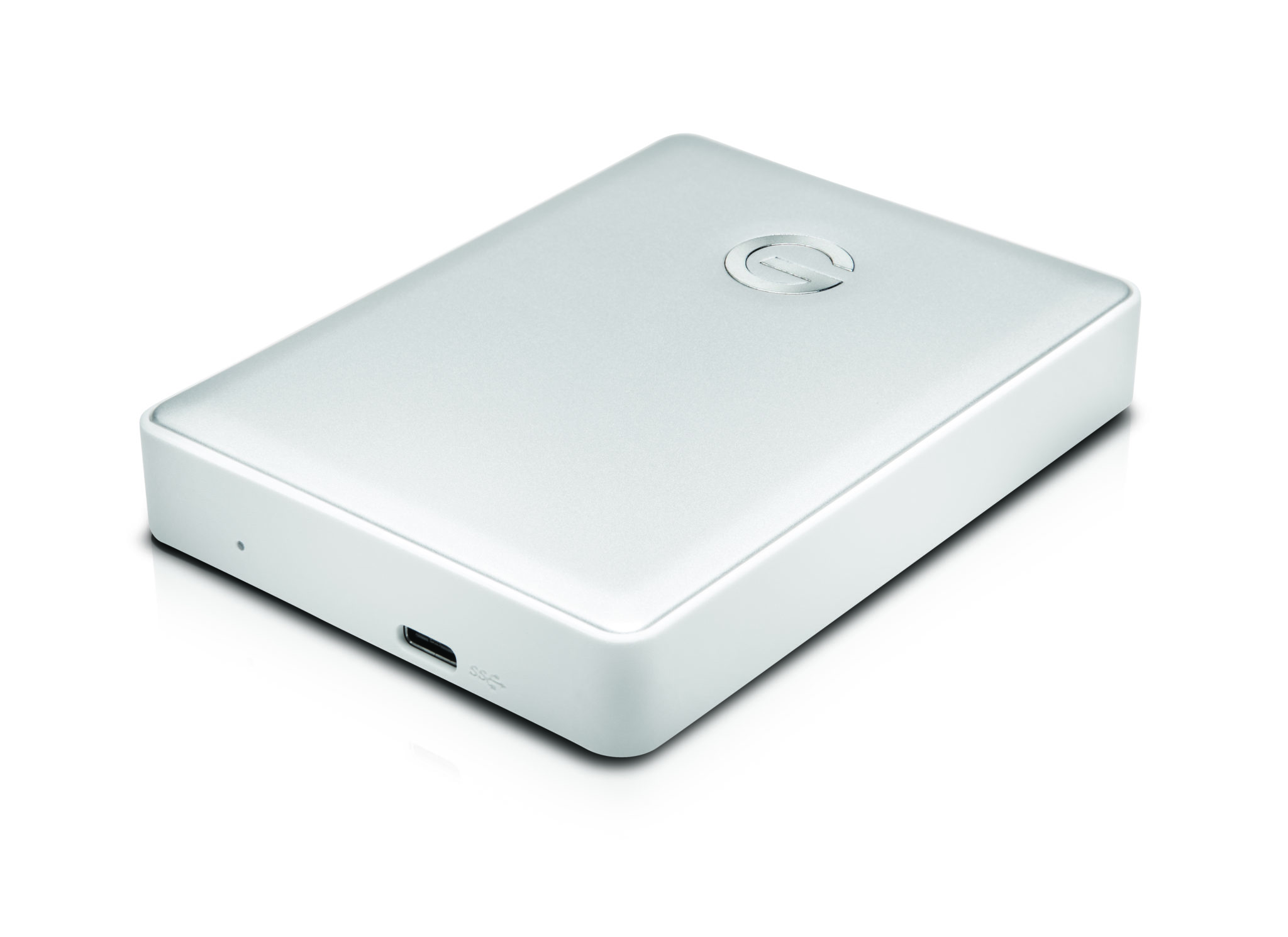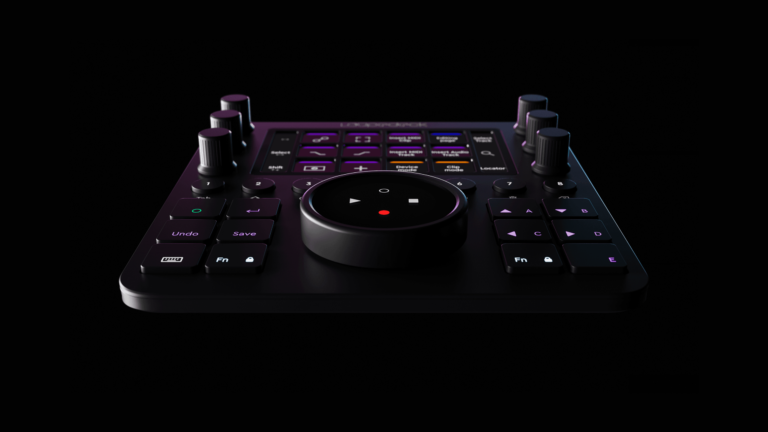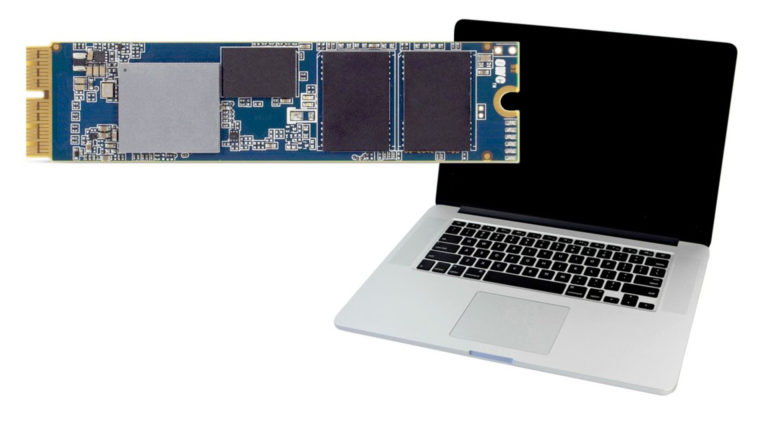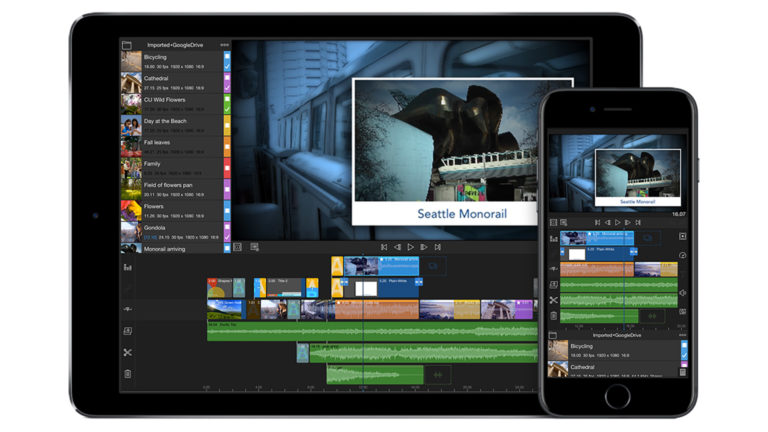Why Are We Still Buying Spinning-Disc Hard Drives?
I’ve been singing the praises of SSDs like everyone else. SSDs featuring the latest 3D architecture and Thunderbolt are the way to go: They are super-fast, use very little power, contain no moving parts, and are getting cheaper all the time. Then why are we still buying spinning-disc mechanical hard drives?
Two reasons: high capacity and low price.
Currently, the G-Technology G-Drive Mobile 4 TB USB-C HDD can be had online for about $150, the equivalent of $0.04/gig. Compare this to the G-Tech 2 TB Thunderbolt SSD at $565, or roughly $0.28/gig — seven times the cost per gigabyte. Sure, SSDs are a better choice when you consider performance, speed, reliability, and power draw. But if capacity and price are your main considerations, the latest generation HDDs like G-Tech’s G-Drive Mobile will amply fit your bill.
For itinerant TV and film professionals, high-capacity portable HDDs mean hauling fewer storage units into the field. It also means that the low-cost drives can be loaned to unreliable collaborators, who may have the nasty habit of not returning “borrowed” drives as promised, and who then stash them in a desktop drawer before adding to their pile of purloined storage devices.

Compared to SSDs, traditional spinning disc hard drives consume about 10x more power, operate at only 1/4 the speed, are far less reliable, So what is there to like about HDDs? High capacity at a low cost. The G-Tech G-Drive Mobile USB-C drive is one of the most cost-effective storage solutions on the market at less than $0.04 per gig.
Notwithstanding the drive’s low-tech mechanical innards, the G-Drive Mobile HDD offers some notable performance enhancements. Curiously, the G-Drive ships with a rather lowly 5400 RPM drive, but the speed and performance of the slower drive, according to G-Tech, rivals a 7200 RPM unit. The improved performance of the G-Drive Mobile appears to be due mostly to more efficient firmware that incrementally increases read and write speeds.
Still, with an observed throughput of about 120–130 MB/s, the G-Drive will not win any prizes for speed in an increasingly SSD-centric world; the 2.5-inch portable HDD attains only about a third of G-Tech’s own SSD benchmark speeds of 400–500 MB/s via USB-C.
Beyond the firmware tweak, the G-Drive Mobile’s improved performance may be attributed also to its native USB-C interface. The G-Drive is not converted from a previous SATA model , which would require throughput to be throttled in order to accommodate the USB-C emulation software.
G-Tech has always been a Mac-centric company, and the unit ships preformatted for Mac OS. However, after merging with Western Digital, G-Tech seems to have assumed a more platform-neutral stance.
The G-Drive Mobile ships with Paragon software for mounting HFS+ volumes on Windows machines. The utility, available at retail for $20, allows users to read and write to HFS+ volumes from Windows machines without reformatting. Paragon’s HFS+ for Windows eliminates the familiar dance of shuffling media files from one system to another. For those of us operating frequently in mixed-platform environments, it’s a welcome addition to our kit.
In my cursory tests, the G-Drive performed well overall, especially when compared to earlier-generation HDDs. Aboard an aircraft flying cross-country, I had no problem pulling 4K UHD source files from the G-Drive Mobile for basic editing. Most users will look to the drive primarily for low-cost intermediary storage, rather than as a source drive for complex post-production tasks. Suffice it say, the latency and speed issues inherent to any low-cost hard drive will start to raise their pesky little heads when you try to edit multiple video streams with a heavy data load. The G-Drive Mobile USB-C HDD is clearly not intended for the raw-format power user.

Proper care should always be exercised when plugging or unplugging from a fragile USB-C or Thunderbolt port. Designers apparently do not understand the rigors of professional filmmaking and the perils we face daily.
As with any consumer drive, ruggedness and reliability are always considerations. Mechanical drives, with their precisely aligned spinning disks, are especially subject to failure from inadvertent shock, controller failure, or a myriad of other gremlins. Professionals are in a high-stakes game, so it’s important to understand the trade-offs inherent in a low-cost, high-capacity consumer drive. For instance, USB-C and Thunderbolt connectors are notoriously fragile, so exercise caution when plugging and unplugging and during routine handling of the data cable and plug.

Most professionals can readily appreciate a low-cost portable 4TB HDD that fits neatly on a coffee shop table or in one’s back pocket. The G-Drive Mobile USB-C drive is best suited backing up entire projects or transferring large files to collaborators – who might or might not return it.
Barry Braverman
Still, for reasons of economy, the G-Drive Mobile USB-C HDD will appeal to professionals who can appreciate 4 TB of cheap portable storage. At the same time, professionals should be aware of the inherent risks. Critical data, such as unbacked-up camera files, should never be entrusted solely to a single low-cost consumer device. Given this caveat, a great many pros will opt for the G-Drive Mobile USB-C HDD for routine backups and for transferring large files.
Sometimes in a portable drive we need big. Sometime in a portable drive we need big and cheap. And sometimes in a portable drive we need to send off a drive and not expect it back. For all of these reasons, you might not want the priciest little high-performance SSD in the window. The G-Tech G-Drive Portable USB-C HDD with the whirring spinning disc might be exactly what you need.










